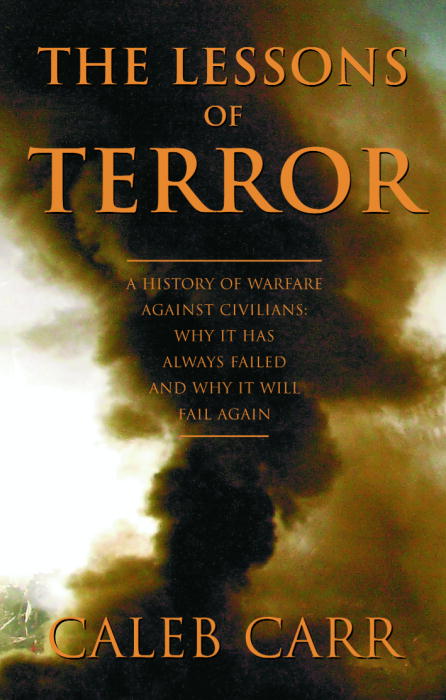
The Lessons of Terror
A History of Warfare Against Civilians: Why It Has Always Failed and Why It Will Fail Again
- اطلاعات
- نقد و بررسی
- دیدگاه کاربران
نقد و بررسی

January 14, 2002
Novelist and military historian Carr (The Alienist,
etc.) penned this brief history of terrorism as a corrective to the widespread perception—spread by ill-informed journalists and politicians—that the September 11 attacks were unique and unprecedented. Carr argues from the start that terrorism must be viewed in terms of "military history, rather than political science or sociology," and that the refusal to label terrorists as soldiers, rather than criminals, is a mistake. Underlying Carr's argument is the view that a repugnant bloodthirstiness arises when one civilization, no matter how advanced, encounters another. Accordingly, as Western civilization spread throughout the 17th and 18th centuries via imperialism, and Europe's seemingly more disciplined armies encountered strange peoples—such as the Aztecs, Native Americans and south Asian Indians—the wholesale slaughter of noncombatants became commonplace. No liberal, Carr zooms in on the history of the U.S. and looks at how terror tactics are fundamental to U.S. military efforts. Such tactics, he shows, were first established in the Civil War, culminated with the firebombing of Germany and Japan during WWII, and reappeared later during the Vietnam War. He traces the manner in which politicians and intellectuals have sought to justify and then curtail attacks on civilians throughout history. Only occasionally dry or repetitive, this often fascinating, accessible tome skillfully contends that the terrorizing of civilians has a long and controversial history but, as an inferior method, is prone to failure; it is rooted as much in human nature as it is in the need for military expediency. (On-sale: Jan. 29)Correction:
Due to a publisher's error, the ISBN for Walking with Prehistoric Beasts
(DK) was incorrect (Nov. 12). The correct ISBN is 0-7894-7829-3.

February 1, 2002
To ignore history is to repeat past mistakes. History professors proffer that piece of wisdom as the primary reason for studying history. Carr, author of the best-selling historical novels "The Alienist" (1994) and" The Angel of Darkness" (1997) and also a military historian, certainly supports that maxim in this beautifully articulated but sobering history of terrorism. Without a doubt, Carr's book needs to be read by as wide an audience as possible. Looking as far back as ancient Rome and bringing his analysis up to the present, he does not so much suggest as "insist" that terrorism is nothing new and that it is not a political or sociological issue. Terrorism, he argues, is as old as warfare itself, and, indeed, it "is" warfare, the kind of warfare "deliberately waged against civilians" to break the enemy's will. Further, Carr presents convincing evidence that terrorism has "never" succeeded in its purpose and that it cannot be fought successfully by repaying in kind or by refusing to recognize its military nature--we must see terrorists as the soldiers they really are. Why pay such close attention to correctly defining terrorism? Because "there have never been two more vital and powerful forces at work in the world than international capitalist democracy and fundamental Islam, nor two forces more capable of physical and cultural destruction." Jolted into reading this book? Good. (Reprinted with permission of Booklist, copyright 2002, American Library Association.)




دیدگاه کاربران